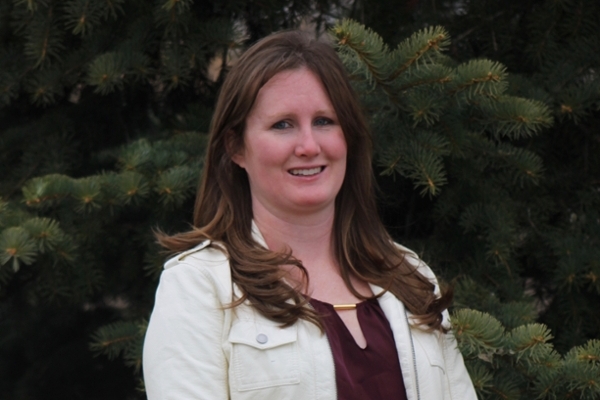Johnson Shoyama Graduate School of Public Policy (JSGS) student, Jade Anderson, was awarded the Queen Elizabeth II Scholarship (QEII) of $20,000 to assist in her future research on Saskatchewan’s medically assisted dying policies.
Anderson, who began PhD in Public Policy at the JSGS’ new Regina Campus on September 5, was shocked and excited when she was notified of her accomplishment.
“Having taken a few years away from studying, I really wasn’t expecting to receive a scholarship of this magnitude before even starting my program,” said Anderson. “I felt very honoured and relieved.”
The prestigious QEII Scholarship is awarded yearly to one Saskatchewan graduate or post-graduate university student who demonstrates academic excellence, presenting them with $20,000 to conduct their significant research endeavors.
Minister of Advanced Education, Tina Beaudry-Mellor, commended recipients on their achievements and spoke to the benefit this scholarship has for the people of Saskatchewan.
“The Queen Elizabeth II Scholarships help Saskatchewan’s graduate students conduct research that benefits our universities, our communities and our province.”
Anderson was granted the scholarship based on her proposed research, entitled Medical Assisted Dying in Saskatchewan: A Consideration of Accessibility, Charter Rights, and Autonomy. Her research seeks to address the ethical practices in health policy and the laws associated with medical assistance in dying (MAiD).
Most importantly, she will explore practitioner’s rights in refusing to provide MAiD and the implications this has on patients, especially in rural and remote areas. She also plans to investigate the policies regarding assessing one’s decision-making capacity, and how these policies may prevent patients who desire MAiD from receiving it or pressure patients to request MAiD earlier than they actually desire.
“With MAiD being a largely controversial issue in the public sphere, it is vital that policies balance the autonomy of patients who desire MAiD while still protecting the interest of the vulnerable patients who do not desire this care,” said Anderson. “They also need to respect practitioner values while also ensuring that patients who request MAiD have timely access to it.
JSGS Associate Professor, Amy Zarzeczny, assisted Anderson in her application process and understands the significance of Anderson’s research efforts.
“The implementation of medical assistance in dying in Canada raises a number of complex public policy issues. Jade’s research is well placed to make an important contribution to this developing area by enhancing understanding of access issues in the context of balancing diverse rights and interests.”
In addition to Zarzeczny, Anderson had a team of academics who supported her research, including Valery Chirkov, Applied Social Psychology Professor University of Saskatchewan, June Anonson, Director of the Centre for Research and Scholarship in Health, Saskatchewan Polytechnic, Kathleen McNutt, Associate Vice-President Research and the Dean Faculty of Graduate Studies at University of Regina, and Lillian Thorpe, Faculty, College of Medicine, University of Saskatchewan.
Anderson has a Bachelor of Arts in Psychology and a Master’s in Applied Psychology, both from the University of Saskatchewan.
